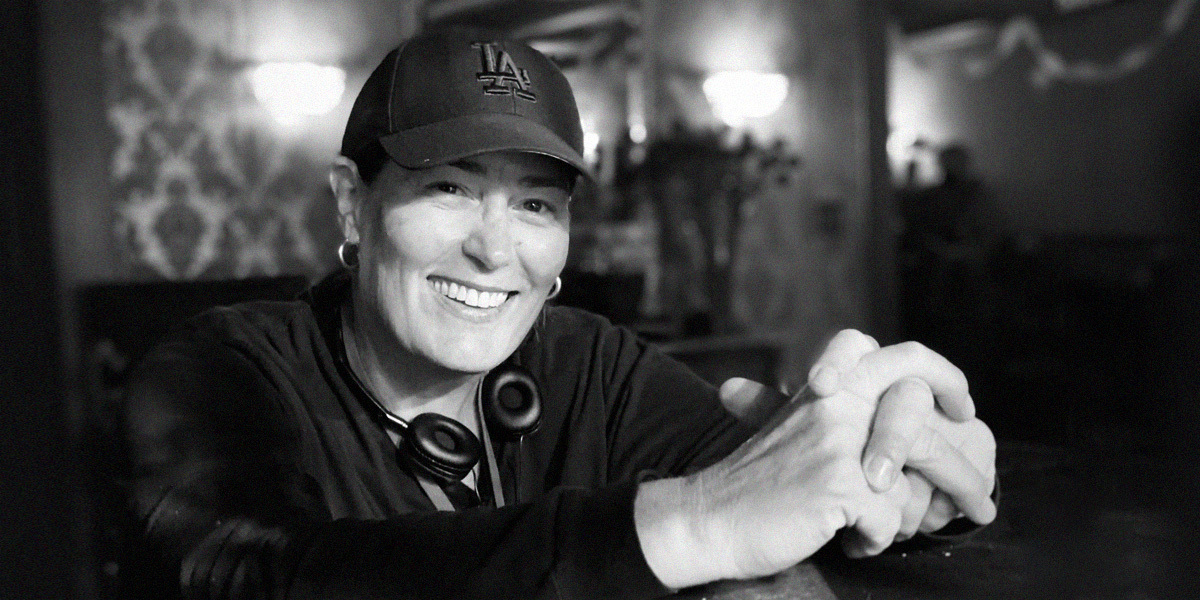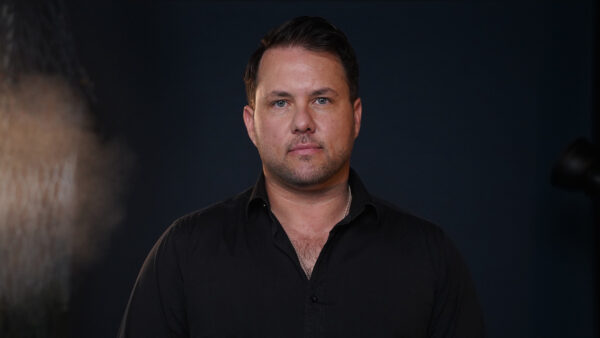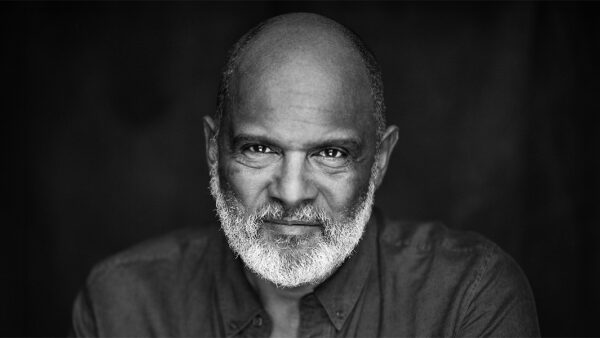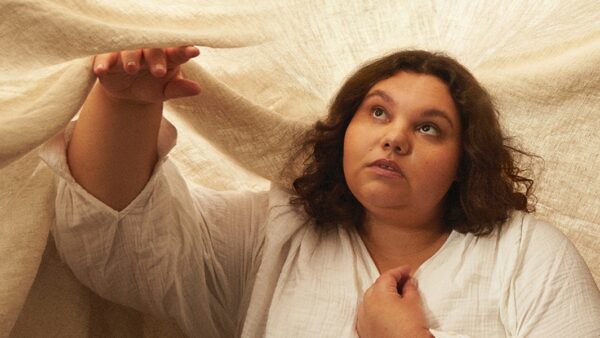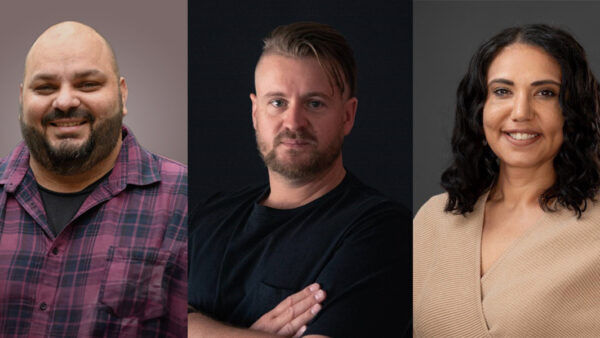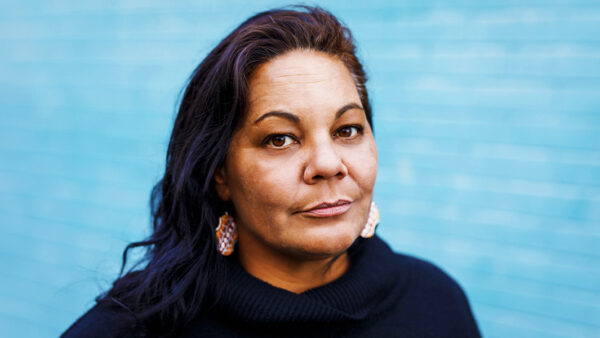Catriona McKenzie is a Gunai/Kurnai woman, who was born in Sydney and now splits her time between the United States and regional New South Wales.
Across her career, Catriona has earned a reputation as one of Australia’s most exciting and versatile filmmakers. Her feature film directorial debut Satellite Boy, which she also wrote and produced, was selected to screen at the Toronto International Film Festival and the Berlin International Film Festival, where it won the Crystal Bear Special Mention Award for Best Film. Satellite Boy also received two AACTA Award nominations, including Best Film. She has worked extensively in television in both Australia and overseas, including Emmy-nominated Dance Academy, hit comedy series Kiki and Kitty, and working across genres on acclaimed series including The Walking Dead, The Boys and Marvel Studios’ Echo.
Catriona graduated from the Australian Film, Television and Radio School (AFTRS) before travelling to the US to study screenwriting at New York University Tisch School of the Arts and landing a coveted internship at Scott Free Productions. Back home in Australia she has also worked as a producer at ABC TV and completed a director’s attachment on Alien: Covenant with Sir Ridley Scott.
Below she discusses how a deep curiosity in people and their stories from a young age was the perfect scaffolding to becoming a filmmaker, working with Ridley Scott and how important it is to always follow your heart.
WHAT MOTIVATED YOU TO BECOME A FILMMAKER?
As a film student I was interning at Scott Free, Ridley Scott’s production company in Los Angeles, couch surfing with friends, scraping money together to eat and I asked myself, “why do I want to be a filmmaker?”
I’d driven across North America, from New York to California in a Bongo Van, which was a total banger. I’m shocked it made the journey, but what was clear was telling cinematic stories had become very important to me. Peter Weir and Ridley Scott have made spectacular films that profoundly delve into the human condition. I needed to tell stories like that too.
However, initially I didn’t even know filmmaking was an option. It was never my goal at all. I tripped into becoming a filmmaker.
I was studying for a Ph.D at the University of NSW when I received a call from my birth mum.
I was adopted as a baby, and I used to fantasise that my birth mum was a princess and my father was a prince. When I met them, it was clear the truth was quite different and the journey I went on to integrate two very different families was a blessing in humanity and humility. It also left me with an even deeper curiosity about characters, people and their stories. In hindsight it was the perfect background and scaffolding for being a filmmaker.
After meeting both families, I left academia and started writing creatively. I went to AFTRS then traveled to New York to study at NYU Tisch School Of The Arts (that’s the Bongo van chapter). My time at NYU allowed me to absorb US filmmaking culture and practice. I left New York obsessed with taking those skills and telling Australian stories.
Looking back it’s clear I was always interested in the interface of filmmaking between Australia and US.
HOW DID YOUR MOVE TO THE US HELP YOU DEVELOP AS A FILMMAKER?
I’m very lucky in that I direct half hour comedies and drama, as well as genre. From Mythic Quest, to Alaska Daily with Hilary Swank, to The Boys, I work with the very best creatives in the world. So, working in the US has expanded my skill set exponentially. I’m about to direct the finale of The Bondsman, then direct Gen V. Both different shows but I’m getting a reputation as the director who can do anything.
I’ve also had a lot of interesting experiences that have expanded my skills. Several years ago, I worked as a Producing Director and EP on a TV series during Covid lockdowns. It was a US production that was filmed in Montreal and the health protocols were extensive, yet we were a production that had to move forward as a team. Working in that way, and at that scale taught me so much about how a large production works and how to interface the US and Canadian cultures of cast and crew.
I’m uniquely placed to see the differences between production in Australia and America. Increasingly, content (I don’t love that word) is being made globally and I believe Australia has the opportunity to be a big part of that production model.
WHAT CHALLENGES HAVE YOU COME ACROSS IN YOUR CAREER?
I’ve been very lucky, and I’ve worked hard to make that luck.
Before I left Australia for America, I hit a point in my life where I had a good look at the people around me professionally and looked at how committed they were to helping me with my career. I cleaned house and it was the best decision I’ve ever made. From that point onwards I made a very conscious decision to only work with people who are very evolved on a human level.
The further you travel the more subtle the effects of people are on your career. I only want to have exceptional humans around me, both personally and professionally.
In many ways my career is like a mirror that reflects who I am. As my career has expanded, I’ve had the opportunity to grow as a person. The better I become as a person, the better my career grows. I need to keep the energy around me clear and positive.
CAN YOU TELL US A BIT ABOUT INTERNING AT SCOTT FREE?
When I interned at Scott Free, I had access to the vault where all the scripts were and I read as many as I could. It’s one thing to watch a movie but when you read the scripts it illuminates the process in a different way. I absorbed so much of the craft of writing during that time at Scott Free. I still read scripts. I love it.
I also saw how a US production company worked – the development, the production, the day-to-day culture of a production company at the highest level. After that I went back to Australia completely inspired to be a filmmaker and started writing and directing.
Years later when Ridley came to Sydney for Alien: Covenant, I applied to shadow him. It was brilliant. The attention to detail from every department was inspiring. The way Ridley works is so creative and visual.
YOU RECENTLY DIRECTED AN EPISODE OF MARVEL STUDIOS’ ECHO. WHAT WAS THAT EXPERIENCE LIKE?
I started out doing cultural mapping at Central Australian Aboriginal Media Association (CAAMA) and that involved traveling to remote Aboriginal communities and sitting down with Elders to listen and record their stories. It was a privilege to spend time listening to those elders’ stories and getting to know them in the process. That cultural context laid the foundation for me as a filmmaker. I learned cultural lessons and a deep humility that I take with me every day.
Since then, I’ve worked across nearly every department in film and TV. I understand all the jobs that the crew do and now as a Director and Executive Producer, I know how to bring people together in all sorts of different contexts in a respectful and efficient fashion.
The latest adventure where I was able to use all my skills was on Marvel Studios’ Echo. On the series, I worked with the Native Producer and the Choctaw Nation on all the cultural protocols so we all felt comfortable with the work and the process to get there.
As part of working on the series I also learnt ASL (American Sign Language) from the ASL team so our lead actor, Alaqua Cox, who is deaf, would feel comfortable and we could communicate on set. I still use ASL. Doug Ridloff, who was the ASL producer on the series, was a patient teacher and advocate.
The series also had a lot of stunts, so I story boarded the stunt sequences and set pieces that the stunt team built. We shot infrared scenes which is rarely done. It’s very technical and Magdalena Gorka, my DP, was such a brilliant collaborator. The stunt sequences were extensive and required weeks and weeks of rehearsal – the stunt team were incredible. Seeing the whole thing come together with such creativity and grace was awesome.
Directing in the US has allowed me to stretch my creative wings and work on incredible projects. I directed The Boys and Outer Range which is being released this year.
Every project I collaborate with incredible people to tell amazing stories. I feel like the luckiest person.
HAVE THERE BEEN ANY PARTICULARLY MEMORABLE EXPERIENCES THAT HAVE IMPACTED YOUR CAREER?
One of the first US TV shows I directed was How To Get Away With Murder. I was directing Viola Davis!!! Legend. Icon. Nervous does not convey how I felt. She is a beautiful person, and an exquisite actor. My 10-year-old son slated her on a scene too. That was very special to both of us. I remember looking from Viola to my son, to my on set monitors and thinking, “I’m really here. This is really happening.”
I also met Tantoo Cardinal on a TV series I directed. She is the consummate professional, trailblazer, and a beautiful human and actor. From Dances With Wolves to Echo, to Killers of The Flower Moon, Tantoo has forged a path as a Native actor across Canada and America. Meeting her was a privilege.
From Viola to Tantoo, those powerful women felt like a full circle welcome to me.
DO YOU HAVE ANY ADVICE FOR FILMMAKERS?
My advice is follow your heart, trust your gut and ditch anyone who holds you back. Anyone who has an agenda for your career that does not serve you, release them.
You are worth it.
